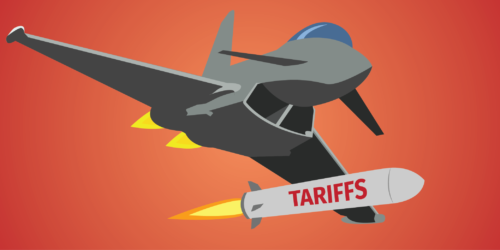Economic Growth Factors, Barriers to Enter a Global Market, ISO9000, International Sales and Marketing Recruits

Economic Growth Factors, Barriers to Enter a Global Market, ISO9000, International Sales and Marketing Recruits
- List and discuss three of the Economic Growth Factors of developing countries discussed in class.
The economic growth of a country can be dependent on or interrelated to many factors, I’ll discuss the three of them which I think the most important.
Political stability: In my opinion, political stability is a prime requisite for the economic development of a country. We check the political situation in a country before anything else when we want to make a projection as regards to such country’s economy in the upcoming years. International brands and foreign investors choose countries which have stability in their politics. Political instability pushes domestic and foreign investment away as no one wants to deal with constantly changing power, legal regulations, or business structures because of political instability.
Economic and legal reforms: A country’s economic and legal policies are another key factor when it comes to projecting its future growth and development. Countries with strong policies attract foreign investment and global attention. Intellectual property and copyright protection is maintained by strong legal reforms. In the class, we learned that it takes less than a week to start a company in Canada, but more than a couple of months to start one in Russia, or Egypt. It’s because of the poorly defined, or unnecessarily complex structures and policies in such countries which cause slow or no economic growth.
Entrepreneurship: Another key factor in my opinion is a support system (financially and non-financially) for entrepreneurship and entrepreneurs. It’s important to have free enterprise in the hands of the self-employed for the sake of economic growth and development in a country. 80% of Canadian companies are ‘’small business’’ which are run by 1 to 10 employees. A significant number of the companies in the S&P 500 were once startups launched and run by young entrepreneurs. If a country supports and promotes entrepreneurship with microcredits, special courses, training, support programs, etc., the impact in a long haul can be massive for a country.
- List and discuss the barriers to entering a global market for international marketers.
International marketers may face four kinds of barriers when entering a global marketplace:
- Protectionism: Protectionism tries to protect domestic industries from foreign competition by restricting imports by imposing tariffs, taxes, quotas, or other restrictions on them. Trump’s steel and aluminium tariffs are a very good example of a protectionist approach. The US was getting most of its steel and aluminium from Canada, when Trump imposed tariffs on their imports, it automatically increased the Canadian steel’s prices in the country and directed the steel purchasers to buy local steel instead.
- Restrictions on transborder data flow: It’s been an ever-growing concern that personal data are being collected, manipulated, and transferred between companies with little regard for the personal privacy of the individuals. Especially in the last century, many countries and regional unions issued personal data protection or personal privacy laws and regulations that include restrictive provisions which may affect or hinder international companies to do business in such markets.
- Protection of intellectual property: Not every country has well-designed and comprehensive legal regulations when it comes to protecting intellectual property rights. Lack or inadequacy of IP protection can be deemed as a barrier for international brands to enter into a foreign market.
- Cultural barriers and adaptation: Culture plays a big role in international business because most of the services involve people-to-people contact and communication. Cultural barriers may cause a significant challenge for international marketers when entering a new market as they need to have a broad understanding of different cultures, and people behaviours to develop the best adaptation and service for the local customers.
- Explain what ISO9000 is and explain why a firm may seek to gain this as a certification.
ISO9000 is a series of international industrial quality standards designed by the International Organization for Standardization. ISO9000 certification for a company means that a quality control system has in place to ensure it meets published quality standards. To receive ISO 9000 certification, a company requests a certifying authority to conduct an audit of the business processes of the company.
Holding an ISO9000 certification provides a strong competitive advantage for companies. Some markets demand high quality, especially where the products or services highly depend on quality. Customers appreciate and attract quality, so having a quality certification is a huge advantage for them.
Especially in Europe, ISO9000 is more and more required for the manufacturers as an increasing number of buyers refusing to buy from manufacturers that do not have internationally recognized third-party proof of their quality capabilities.
- List and discuss the three categories of recruits sought for international sales and marketing positions. Include their advantages and disadvantages.
Expatriates: Expatriates are from the home country who move to a foreign market for the job. Since they’re from the headquarters, they usually have a better knowledge of the company and its products/services. Their dependability and reliability are usually high, they can communicate effectively with headquarters’ personnel. When it comes to disadvantages of recruiting expatriates, the first would be high cost. Since they’re relocated from one country to another, the cost of doing so is higher than recruiting local nationals in most of the cases. Cultural and legal barriers are another challenge of recruiting expatriates. They’re from a different country, so it takes time for them adopt the new culture and business processes. Besides, not many professionals want to be relocated, especially if they have a family and kids, so it’s hard to find high-quality personnel willing to move abroad.
Local nationals: Locals can be recruited in a foreign market too. Advantages of having local sales and/or marketing team include that they would be definitely more knowledgeable than anyone else as regards to the country’s business structure and culture. Since they grow up in such a culture, they would be more capable of developing an effective sales and marketing strategy that will capture more customers. Besides, in most of the cases, they are less costly than recruiting expatriates or even TCNs.
However, their unfamiliarity with the home country’s culture or language affects their level of influence which can result in them being ignored by headquarters’ personnel. Besides, it’s not easy to recruit high-quality salespeople as in most of the cultures sales is not a valuable or prestigious job. Therefore quality workers don’t get to be willing to pursue a career in sales.
Third-Country Nationals: TCNs are neither from the home, nor from the host country. They are recruited from a third country and relocated into the host country. The reason to recruit TCNs would be that they may speak several languages including the host or home country’s, or have high knowledge of doing business in the host country. American firms often use TCNs to avoid double taxation costs. However, disadvantages may not be negligible when it comes to TCNs. Since they’re not familiar with neither the home country’s nor the host country’s business structures or cultures, they may face with adaptation or inadequacy problem. Besides, having TCNs may demotivate the local employees and create cultural hostilities.
- List and discuss at least three of the necessary qualities needed to find success as an international sales and marketing professional.
There are many qualities deemed essential or good-to-have for international sales and marketing professionals, I’ll discuss the three of them which I think the most important.
High level of energy: International sales and marketing is not an easy job, it requires people-to-people contact, constant communication, and may require many travels in and out of the country. In my opinion, a high level of energy is the most essential quality, especially in sales jobs. One may have a great breadth of knowledge, and highest positive outlook and all, but if such person’s energy level is low, it’s a high possibility that I don’t buy from such person or company. However, one may make mistakes in their sales pitch, or say things weird, but their high energy and passion can definitely make me buy from them.
High energy is interpreted as your passion for your job and the product or service you’re selling, and people like working with or buying from passionate people.
Maturity: Maturity is another essential quality for international sales and marketing personnel. It’s because these jobs usually require working remotely, or even abroad, and reporting from different locations. International sales and marketing personnel work independently and remotely which requires a high level of self-discipline and also commitment. The company management should be confident about they’ll work effectively and ethically individually which is highly interrelated to their maturity level.
Cultural empathy: Cultural empathy is another must-have for international sales and marketing professionals. They work with people from different countries and cultures and it’s highly likely that they’ll face cultural barriers and differences throughout the job. One must be culturally intelligent and empathetic to tolerate differences and maturely handle them.



